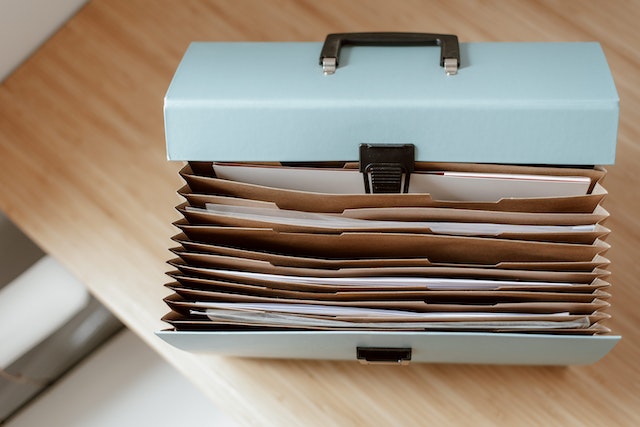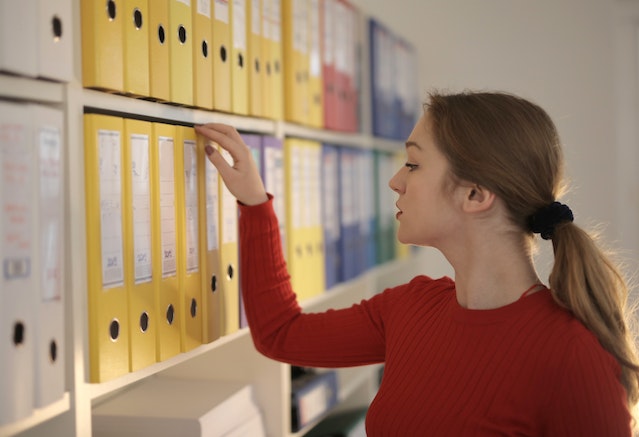Rental Documents Landlords Need

Having the right paperwork in place is the key to running a successful rental business. Without the documents, you can find yourself facing costly legal disputes or financial losses. Whether it's dealing with tenant disputes or filing an insurance claim, paperwork can always help you.
However, it can be a bit confusing knowing which documents you need. We, at McKenna & Vane Property Management, have got you covered. In this article, we will cover all the essential rental documents you need. We will also tell you how to create these documents, and when you need to use them.
Why Paperwork is Important in the Rental Business
Paperwork is an essential part of the rental business. It to avoid potential legal issues that may arise in the future. Having the right paperwork in place can help landlords avoid potential fines or even lawsuits.
1. Legally Protect the Landlord
Having rental documents in place helps landlords protect their legal rights. They provide a written record of the agreement between the landlord and tenant. This creates clarity and avoids any disputes or misunderstandings that could arise later.
2. Avoid Discrimination
Having rental documents helps landlords avoid any potential discrimination issues. By having a clear rental agreement, both landlord and tenant know what is expected of them.
3. Keeps Track of Payments
Furthermore, it helps landlords keep track of payments and any other important information. It is also a good way to document any disputes or issues that may arise during the tenant's stay.
The Basics: What Every Landlord Should Keep on File
From the start of a lease agreement to its conclusion, you must ensure you have all the necessary documents on file.

This includes a valid and signed rental agreement, a completed rental application with proof of identification, renter's insurance (if required), and payment records.
Furthermore, tenant-specific information such as lease renewal notices and move-in/move-out checklists should be kept on record for future reference. Additionally, landlords should keep all related receipts from repairs or services performed on the property for potential tax deductions at year's end.
Let's dig into the essential documents that you must have.
The Lease: Setting the Ground Rules
A lease agreement is an important document in a rental business. It provides legal protection for both the landlord and the tenant. It outlines your rights, the length of the lease, the amount of rent, any security deposits, and other arrangements.
The lease agreement also sets out the consequences for breaking any of the terms of the agreement, such as eviction or legal action. Having a clearly written lease agreement can help to avoid disputes and provide a clear understanding of the expectations of both parties.
Maintenance Records: Documenting the Upkeep of Your Property
You should also keep a record of all the repairs or improvements to the property. This is especially useful for tax purposes. With these records, you can deduct the cost of any repairs or improvements from your taxes.

To do this, create a system for tracking repairs and maintenance for each property in your portfolio. Document any repairs made, including the estimated cost, who performed the work, when it was completed, and how long it took. Also account for any water damage or other damages.
It'd be great if you organized the maintenance records chronologically or by property. Make sure to also keep all receipts and invoices detailing work that was done in case you need to refer to them later. Creating a spreadsheet can also help landlords stay organized.
Rental Payment History: Tracking the Financials
You should keep track of rental payments. This includes the date of payment, the amount of the payment, and the form of payment used (cash, check, money order, etc.). You can also keep records of security deposit.
Accurate records can make it easier to complete tax forms correctly each year. Plus, these records will provide proof, if needed, during an audit or dispute resolution process.
You can document rental payments in a simple notebook or in accounting software. Creating a spreadsheet can also help you track financial information easily. Whatever method you use, make sure to store the information in a secure place.
Insurance Documents: Protecting Yourself and Your Investment
You should also store any insurance documents that pertain to your rental property. These documents should include:
● The insurance policy
● A copy of the certificate of insurance
● Contact information for the insurance agent or company
.jpg)
Keeping copies of these documents will help you prove that you have the required insurance coverage if you ever need to file a claim. It is also important to stay on top of your insurance policy and make sure that it is updated and current.
Move-In and Move-Out Inspection Reports
Keep copies of move-in and move-out inspection reports. These records will outline the condition of your property when a tenant moves in. These reports are also useful if there is ever a dispute between you and the tenant regarding the condition of the property when they move out.
Bottom Line
From rental agreements to policies and maintenance records, you must keep all the documents safe. Having these documents on hand will help protect you from potential issues and disputes. Further, it will make your rental process easier and more efficient.
If you're struggling to maintain these documents, McKenna & Vane can help. Our team can sort through all your paperwork, organize it, and make sure it's compliant with all state and federal laws.
We can also help you manage all your rental properties, so you can focus on what matters most. McKenna & Vane can make your rental experience smoother and less stressful. Give us a call today to learn more.
